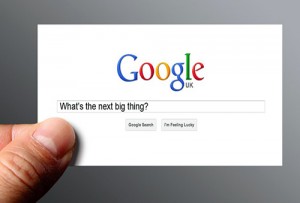 I have noticed that as people age, they become finer and finer versions of themselves. Their eccentricities become sharper and more pronounced; their opinions and ideas more pointed and immutable; their thoughts more focussed. In short, I like to say that they become more perfect versions of themselves. We see it in our friends and acquaintances and in our parents and grandparents. It seems a part of natural human development.
I have noticed that as people age, they become finer and finer versions of themselves. Their eccentricities become sharper and more pronounced; their opinions and ideas more pointed and immutable; their thoughts more focussed. In short, I like to say that they become more perfect versions of themselves. We see it in our friends and acquaintances and in our parents and grandparents. It seems a part of natural human development.
Back in 2006, Netflix initiated the Netflix Prize with the intent of encouraging development of improvements in the accuracy of predictions about how much someone is going to enjoy a movie based on their movie preferences and rewarding the winner with $1,000,000. Contestants were given access to a set of Netflix’s end-users’ movie ratings and were challenged to provide recommendations of other movies to watch that bested Netflix’s own recommendation engine. BellKor’s Pragmatic Chaos team was announced as the winner in 2009 having manage to improve Netflix’s recommendations by 10% and walked off with the prize money.
What did they do? Basically, they algorithmically determined and identified movies that were exceptionally similar to the ones that were already liked by a specific user and offered those movies as recommended viewing. And they did it really well.
In essence what the Bellkor team did was build a better echo chamber. Every viewer is analyzed, their taste detailed and then the algorithm perfects that taste and hones it to a razor sharp edge. You become, say, an expert in light romantic comedies with a strong female lead, who lives in a spacious apartment in Manhattan, includes many dog owners, no visible children and often features panoramic views of Central Park.
Of course, therein lies the rub. A multifaceted rub at that. As recommendation engines become more accurate and discerning of individual tastes they remove any element of chance, randomness or error that might serve to introduce new experiences, genres or even products into you life. You become a more perfect version of you. But in that perfection you are also stunted. You are shielded from experimentation and breadth of experience. You pick a single pond and overfish it.
There are many reasons why this is bad and we see it reflected, most obviously, in our political discourse where our interactions with opposing viewpoints are limited to exchanges of taunts (as opposed to conversations) followed by a quick retreat to the comfort of our well-constructed echo chambers of choice where our already perfected views are nurtured and reinforced.
But it also has other ramifications. If we come to know what people like to such a degree then innovation outside safe and well-known boundaries might be discouraged. If Netflix knows that 90% of its subscribers like action/adventure films with a male hero and lots of explosions why would they bother investing in a story about a broken family being held together by a sullen beekeeper. If retail recommendations hew toward what you are most likely to buy – how can markets of unrelated products be expanded? How can individual tastes be extended and deepened?
Extending that – why would anyone risk investment in or development of something new and radically different if the recommendation engine models cannot justify it. How can the leap be made from Zero to One – as Peter Theil described – in a society, market or investment environment in which the recommendation data is not present and does not justify it?
There are a number of possible answers. One might be that “gut instincts” need to continue to play a role in innovation and development and investment and that risk aversion has no place in making the giant leaps that technology builds upon and needs in order to thrive.
A more geeky answer is that big data isn’t yet big enough and that recommendation engines aren’t yet smart enough. A good recommendation engine will not just reinforce your prejudicial tastes, it will also often challenge and extend them and that we don’t yet have the modelling right to do that effectively. The data are there but we don’t yet know how to mine it correctly to broaden rather than narrow our horizons. This broadening – when properly implemented – will widen markets and opportunities and increase revenue.


